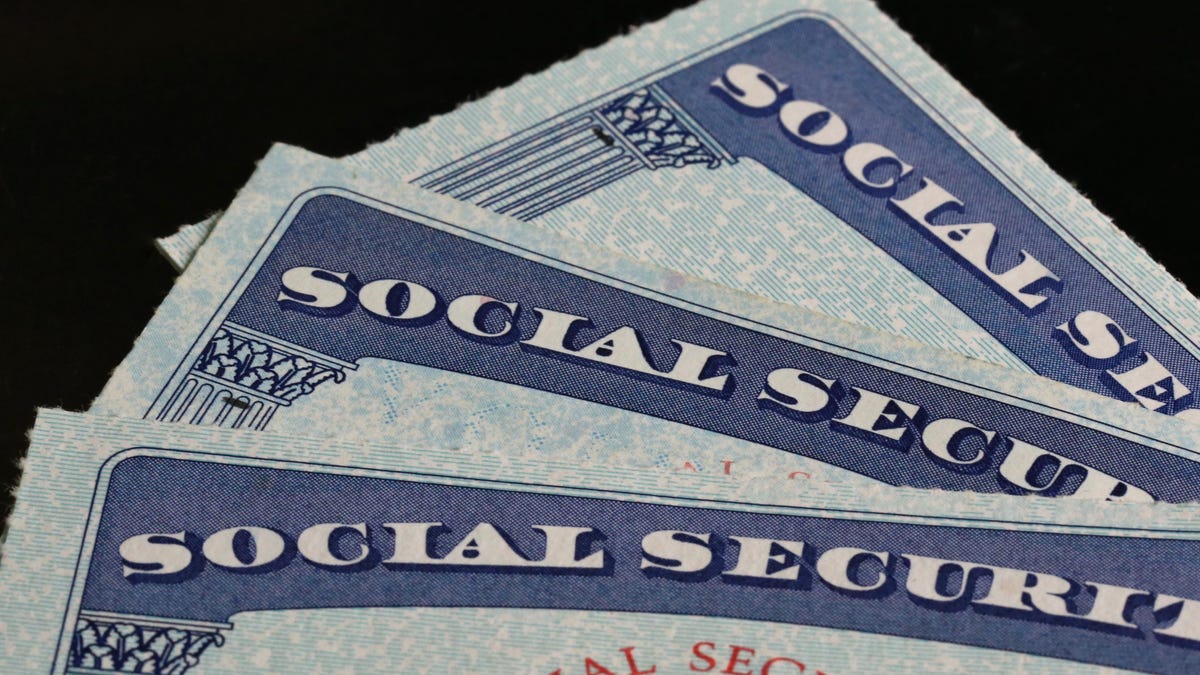 Why You Can Trust CNET
Why You Can Trust CNET Emergency prep: 3 tips to recover important documents after a natural disaster
An ounce of digital prevention can spare you weeks of headaches if your personal identification papers are lost following a wildfire or other disaster.

Learn how to secure your most important documents.
The worst has happened. An accident or disaster has destroyed your most important personal identification documents, leaving you scrambling for ways to verify your identity, restore your accounts and get your life back on track. The good news is that there are several preventive measures you can take to head off the worst fallout from this kind of crisis.
Here are three ways to prepare and secure your identifying documents before and after disaster strikes.
Read more: Wildfire season is here: Everything you need to know
Email yourself all of your crucial documents
In the event of a fire, flood or other natural disaster, there's no guarantee that even if it's wisely packed in your bug-out bag, your self-contained data storage devices (like your external hard drives or thumb drives) will survive. The safest bet to avoid total loss of data after your physical property is destroyed is to ensure your documents and information are stored offsite digitally.
To be safe, you should routinely digitize important physical business, identification and tax documents as they are created. Simply scan your important records -- such as your driver's license and passport -- or take clear pictures of them. Attach those scans to an email and send it to yourself. Also consider sending them to one trusted person in the event you are locked out of your own email account following a disaster.
As you're sending the scans or images to yourself, be sure to include key phrases and words in the email which you're likely to recall. In the stress following a disaster, you may not be able to remember the date you uploaded the images, but you should be able to quickly retrieve the email by searching your inbox for phrases like "passport and social security." You can also create an emergency folder in your inbox to store them in.
Keep in mind that your personal information is only as secure as your email provider. For example, if you're a Gmail user, make sure you've taken a few minutes to review your security settings. If you're not satisfied with Gmail's overall security, you should look into its widely hailed, privacy-minded competitor, Protonmail.
Federal phone lines can help
If disaster strikes before you can email yourself copies of all of your important documents, the US government can help you replace them. The Federal Emergency Management Agency maintains a helpful website where you can find phone numbers and websites for a range of federally- and locally-issued public and private account documents -- from your Social Security card, passport, your Medicare and SNAP cards, to your green cards, birth and death certificates, and state IDs and licenses.
Keep this link saved in your browser or email it to yourself in a message containing all relevant keywords so that it's easily searchable as you're attempting to pick up the pieces in a state of distress.
Get a password manager
If you still keep a paper record of passwords to your online accounts, you could find yourself swamped in an endless cycle of frustrating account lock-outs and password resets. To spare yourself this modern nightmare, choose a solid password manager -- an encrypted digital vault that stores the login information you use to access apps on mobile devices, websites and other services.
By choosing a good password manager, you're not only relieved of the burden of having to memorize dozens of passwords in the event of disaster, but you'll also be able to use the manager to generate strong, unique passwords. Well-known managers like LastPass and 1Password, for instance, include this feature, and both come with either free or trial versions.
Read more: 16 emergency apps for wildfires, earthquakes and other disasters
Avoid these three things
Following the steps above can keep your documents safe. But you should also avoid doing any of the examples below to avoid potential security issues:
- Don't write all of your usernames and passwords in a single Google Doc. Collecting all of your information in a single document means that someone only has to hack into your Gmail account to have access to every single account.
- Don't add important numbers like your passwords or your passport numbers to your email provider's address book. Just as you wouldn't want to create a single point of access to all of your accounts via a Google Doc, you don't want to turn one hack into your email account into a massive breach of all your accounts and personal identification.
- Don't delay when your password manager has an update available. The sooner you install a software update, the less you risk a security compromise.

